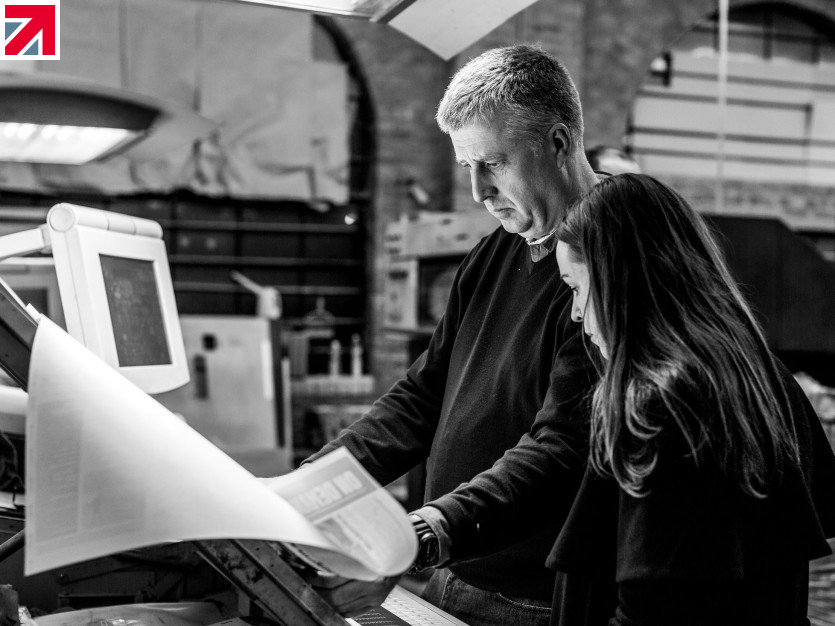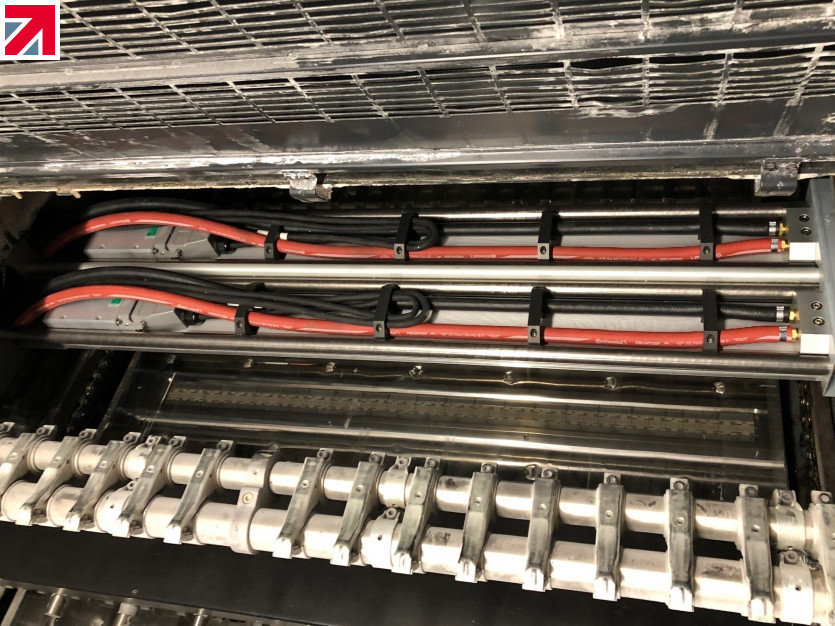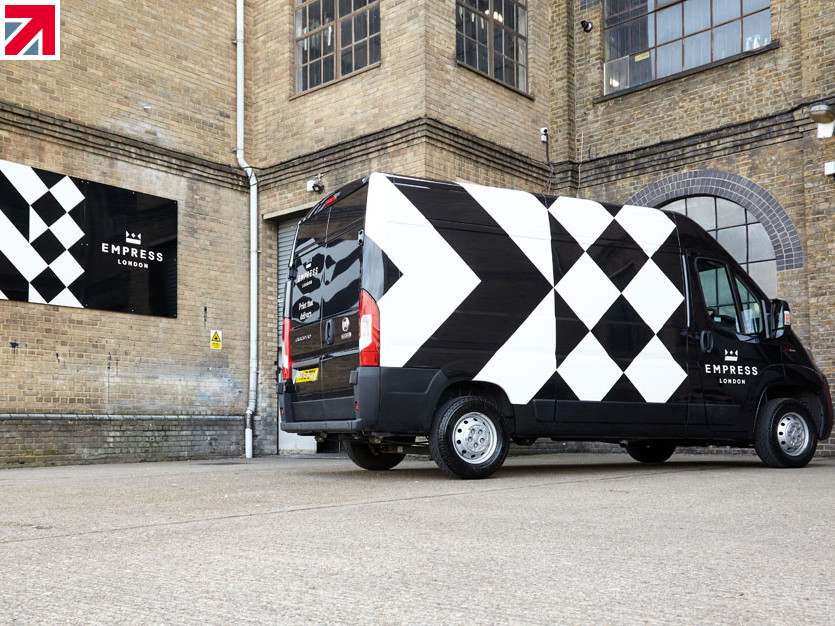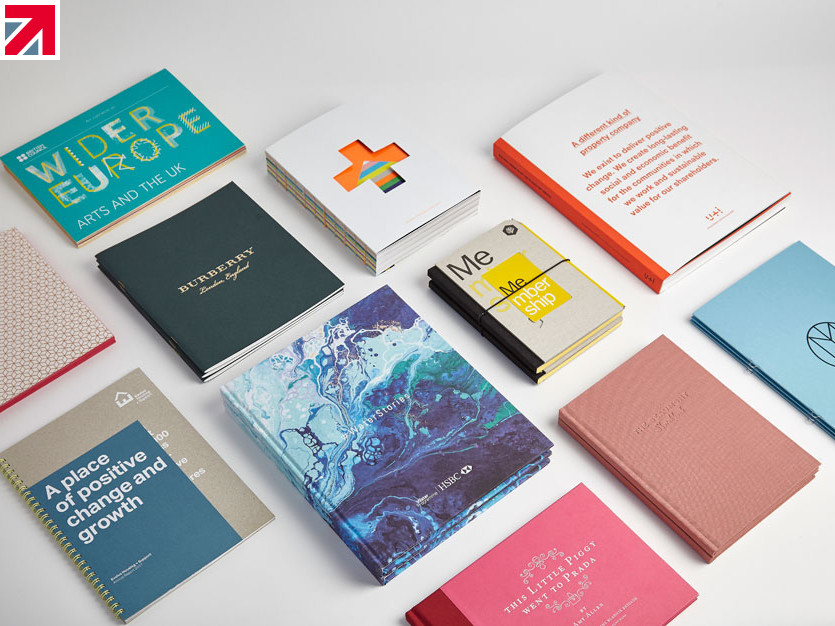Woolwich-based Empress Litho handles the print requirements of a number of highly demanding London design agencies, and has a plethora of awards to show for their work. UV LED has played a part in this success by enabling the use of new substrates and a move into prestige packaging work.
David May, Managing Director at Empress Litho, is animated when explaining what he believes are the key reasons for the company’s ongoing success in a fiercely competitive market: “We’re a highly flexible, award-winning printing company who have been collaborating with the best of the creative industry for over 30 years. We’re more of a trusted partner than a supplier, advising and working closely with clients to realise their creative vision. Our reputation for exceptional print is matched only by our commitment to impeccable service. From self-publishers to large corporates, we give everyone the same love, attention and guidance.
“Our position in this high-end market demands that we have to have the latest in tech to stay ahead of the field, to remain competitive and to be able to meet ever-decreasing turnaround expectations. This is the key reason why we first looked at UV LED curing, back in 2017. We’re a B1 house and if we were going to introduce digital back then, it would had to have been B2, but we decided instead to install UV LED on our existing litho press. By doing this we are sweating an existing asset, and at the same time we solved our need for faster throughput of work, particularly on shorter to mid-length runs. We can now achieve better-than-digital quality but in digital turnaround times, and at the same time our production costs are lower than digital, so we are competitive and we get a better margin.”
Empress’s 6-colour Heidelberg CD102 has been retrofitted with a GEW LeoLED UV curing system installed in the press delivery. Its two 100cm-width LED lampheads have a width-switching function down to 80cm, enabling energy to be saved when printing smaller sheet sizes. The UV LED system is complete with its own chiller unit, integrated power supply, and an HMI touchscreen which gives the press operator complete control over the UV curing process.
The press was retrofitted over the course of four days. Two of these days were for the installation of the ancillary chiller unit and power supply system, which took place alongside normal press production. On the third day the UV lampheads were installed in the press delivery, with the machine back up and running on day four. May comments: “Disruption was minimal, the installation team had clearly seen it all before. The integration had all been 3D computer-modelled in advance, so any potential problems could be resolved at that stage and not on the shop floor.”
The UV system is also remotely monitored by GEW, over the internet. This enables encrypted system performance data to be sent live to GEW’s Service team, ensuring a fast and precise service response should the need arise. The full service history of every lamp is recorded and viewable, including all parameters, faults and operator commands. A preventative maintenance program will recommend software or hardware updates and can highlight and correct out-of-tolerance parameters before any issue arises on site. This remote monitoring platform also enables comprehensive monthly system performance reports to be sent to Empress, including such information as energy use and machine uptime, so that their press productivity can be monitored more closely than ever before.
When researching the viability of UV LED for Empress, May became aware of the higher cost of LED inks versus conventional inks. He explains his decision to go ahead with an LED retrofit, despite this: “The cost of ink typically ranges from 3% to 6% of the cost of a job, when all things are taken into account. Even with this rising to around 9% in the case of LED inks, this is more than offset by the productivity benefits created by instant drying, not to mention the elimination of spray powder and machine sealer. As a result, our downtime for press cleaning is minimal. We have also eradicated the problems of set-off and dryback… colours remain vibrant on uncoated stock, so when a customer has visited us for a press-pass they can be sure that what they have seen is exactly what they will get.”
A further consideration for May when reviewing LED, was that the technology seemed to be targeted squarely at the four-colour market, with the infrastructure for specials and Pantone inks still in its infancy. He explains: “Most UK ink suppliers only offer four colours. Pantones, metallic and fluorescents are still regarded as specialist and only a few support this. Most suppliers cite lack of demand. More importantly LED ink does not come in the usual Pantone base mix colours, so you need your ink-makers’ secret recipe to mix from their LED base colours. On the positive side, LED also supports opaque white ink which can then be overprinted, so you can print strong and vivid four-colour images on non-white paper and that ability has led us into more specialist packaging work, where our ingrained ability to do the difficult and demanding projects has paid dividends.”
Solving specials was challenging, but May openly admits he has found a high level of efficiency in working with LED, as he explains: “With LED you don’t wash up, you don’t use spray powder, the machine is hugely productive and will just eat work. The productivity and revenue benefits far outweigh any downsides.” He continues: “What you also get with LED is predictability of your finishing processes because you have no set-off, no marking or scuffing, or any of those type of problems that bring in hidden costs that eat into your margin.”
May’s original reason for investing in the UV system retrofit was purely to speed up production and push more work through to the bindery. He explains how the investment has brought other, unexpected benefits: “With LED we can now print on an awful lot of very difficult papers and other substrates, which is key to our move into more and more high end, high quality work. While it was not necessarily part of the original plan, it has enabled us to capture so much prestige work that would otherwise be unattainable.”
As was the case with all commercial printers, Empress Litho’s business was severely reduced during the COVID pandemic. Traditional commercial work dried up almost overnight, but this was largely replaced by a rapidly increasing demand for packaging. May describes how the change evolved: “Our business plan was thrown into turmoil at first, but because we have Heidelberg CDs that can print on 1.2mm carton board, and we have the UV LED that can print foodsafe low migration inks, we were increasingly approached by UK-based firms looking to fulfil their food packaging requirements more locally. This got the business through COVID and I think if we did not have the LED capability, we might not have done that.” He concludes: “What’s more, that new business stream is still with us, on top of the returning corporate printing work, so it’s a win-win.”
-
Sales contact details for Empress Litho:
David May, Managing Director, Empress Litho, Dockyard Industrial Estate, Woolwich Church St., London, SE18 5PQ, UK.
T: +44 (0) 20 8316 6648 | E: david@empresslitho.com
-
Sales contact details for GEW:
Jamie Neill, Sales Manager UK & Ireland, GEW (EC) Limited, Crompton Way, Crawley, RH10 9QR, UK.
T: +44 (0) 7793 042 467 | E: jneill@gewuv.com
-
Press contact details for GEW:
Duncan Smith, Corporate Communications, GEW (EC) Limited, Crompton Way, Crawley, RH10 9QR, UK.
T: +44 (0) 1737 824 500 | E: dsmith@gewuv.com
Find out more about GEW (EC) Limited on their member profile page here
Member-created content 3 years ago | From members



